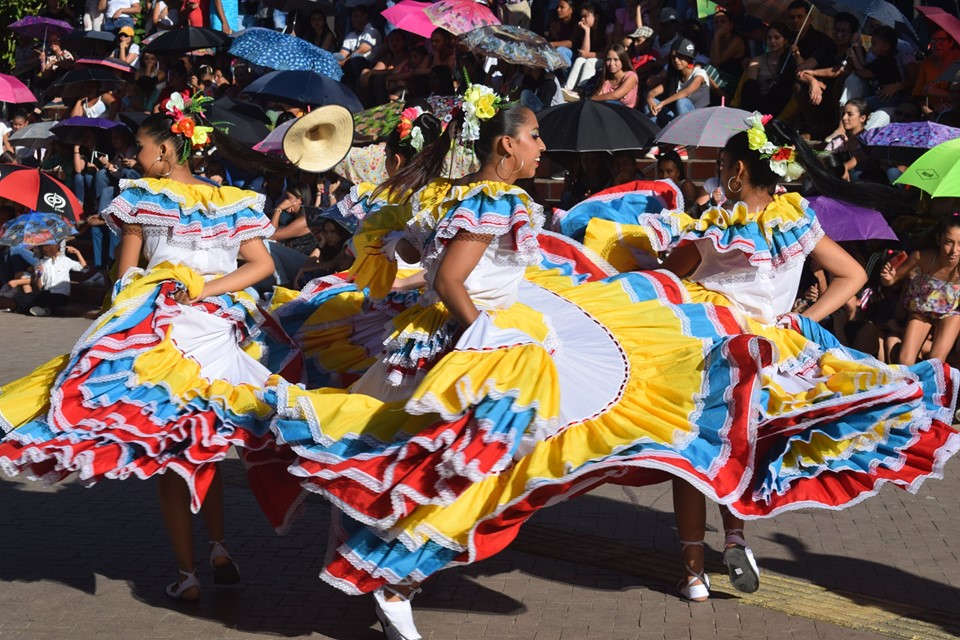Yolombó, a charming municipality in Antioquia, Colombia, is a place where traditions and history intertwine uniquely.
Through its festivals, cuisine, and cultural activities, Yolombó offers a window to its rich heritage. In this article, we will explore the diverse traditions of Yolombó that make this place a special destination.
- What are the most important traditions of Yolombó?
- What festivals are celebrated in Yolombó in 2024?
- What is the typical food of Yolombó?
- What activities are held during the Marquisate and Molienda festivals?
- What to do in Yolombó besides the festivals?
- Where to stay in Yolombó, Antioquia?
- What is the history of Yolombó and its cultural importance?
What are the most important traditions of Yolombó?
Las traditions of Yolombó are a reflection of its history and the daily life of its inhabitants. Among the most outstanding are:
- The Marquisate Festivals, which celebrate local history and attract thousands of visitors each year.
- The Molienda, an event that revives the traditional techniques of panela and corn production.
- The patron saint festivals, where the community comes together in honor of their patron saint.
During these festivals, the inhabitants wear typical costumes and participate in folk dances, thus showcasing the richness of their culture. Additionally, the festive atmosphere is complemented by music and typical food that represent Yolombó's identity.
What festivals are celebrated in Yolombó in 2024?
The year 2024 promises to be a vibrant period for the traditions of Yolombó. The most important celebrations include:
- Marquisate Festivals: They will take place in January, with cultural activities, music, and the famous Popular Reign.
- Molienda: This event, also starting in January, celebrates the harvest and corn production, with live demonstrations.
- Yolombó the Eco Culture Lives: A festival that promotes classical and traditional music, ideal for culture lovers.
These festivals are an excellent opportunity for tourists to experience the local culture. The streets fill with colors, flavors, and sounds, creating a festive atmosphere not to be missed.

What is the typical food of Yolombó?
La gastronomy of Yolombó is rich and varied, and offers a culinary experience that reflects its traditions. Some of the most representative dishes include:
- Arepas: A staple found in many meals, made with corn.
- Sancocho: A traditional broth that combines different types of meat and vegetables.
- Empanadas: Made with corn dough, filled with meat or chicken, they are a popular dish at festivals.
In addition to these dishes, the typical drinks like aguapanela and Colombian coffee are essential at any table. Each bite tells a story of Yolombó's cultural heritage.
What activities are held during the Marquisate and Molienda festivals?
During the Marquisate and Molienda festivals, the municipality transforms into a center of cultural and recreational activities. Among the most notable activities are:
- Concerts and presentations: Local and national artists perform on open-air stages, offering a mix of folk and contemporary music.
- Parades: The streets are filled with color with parades of floats and folk groups celebrating Yolombó's culture.
- Activities for children: Games and workshops that allow little ones to learn about their traditions and participate in the celebration.
These activities not only entertain but also educate visitors about the local history and customs, fostering a greater appreciation for Yolombó's culture.
What to do in Yolombó besides the festivals?
Yolombó offers a variety of activities for visitors, beyond its renowned festivals. Some recommended places and activities include:
- Visits to historical sites: Tour the historic center to learn more about the history of Yolombó and its cultural legacy.
- Hiking: Take advantage of the beautiful landscapes of the region by visiting natural parks and hiking trails.
- Gastronomic tours: Enjoy the gastronomy of Yolombó through tours of local restaurants.
Additionally, visitors can interact with locals to learn more about their customs and traditions, creating a deeper connection with the culture.
Where to stay in Yolombó, Antioquia?
To enjoy a pleasant stay in Yolombó, it is important to consider the accommodation options. Among the most prominent are:
- Boutique hotels: They offer a unique and personalized experience, with attention to detail and a focus on local culture.
- Rural accommodations: Ideal for those seeking a closer experience to nature, with the possibility of enjoying spectacular views.
- Hostels: Perfect for travelers who wish to share experiences and meet other tourists.
It is recommended to book in advance, especially during festival months, to ensure a comfortable and suitable place.
What is the history of Yolombó and its cultural importance?
La history of Yolombó dates back to 1560, when it was founded by Spanish colonizers. Since then, it has evolved as an agricultural and livestock center, preserving its cultural essence over the years. Some important features of its history include:
- Cultural legacy: Yolombó has kept its traditions alive, passing them down from generation to generation.
- Economic development: Over the years, agriculture and livestock have been fundamental pillars for its growth.
- Cultural events: The celebration of the traditions of Yolombó has allowed the community to unite and promote its identity.
The rich history of Yolombó is not only a source of pride for its inhabitants but also attracts tourists interested in exploring its cultural and social heritage.
To learn more about the traditions of Yolombó, we invite you to enjoy the following video:
Through these traditions of Yolombó, visitors can immerse themselves in an authentic experience that celebrates the culture and history of this beautiful municipality in Antioquia.

Tradiciones relacionadas